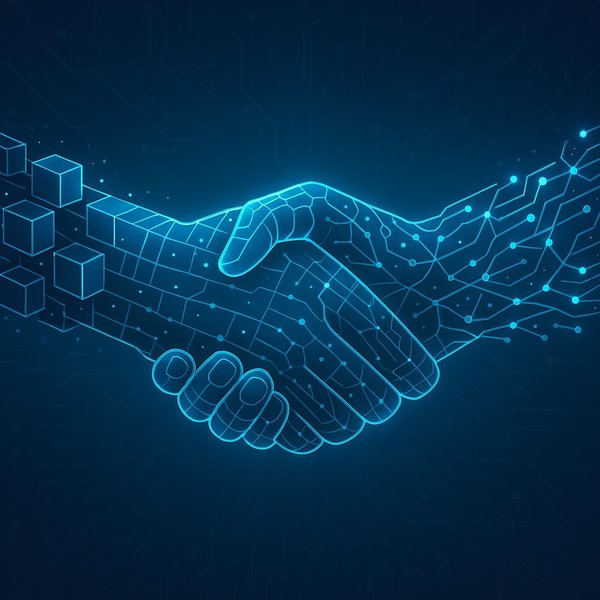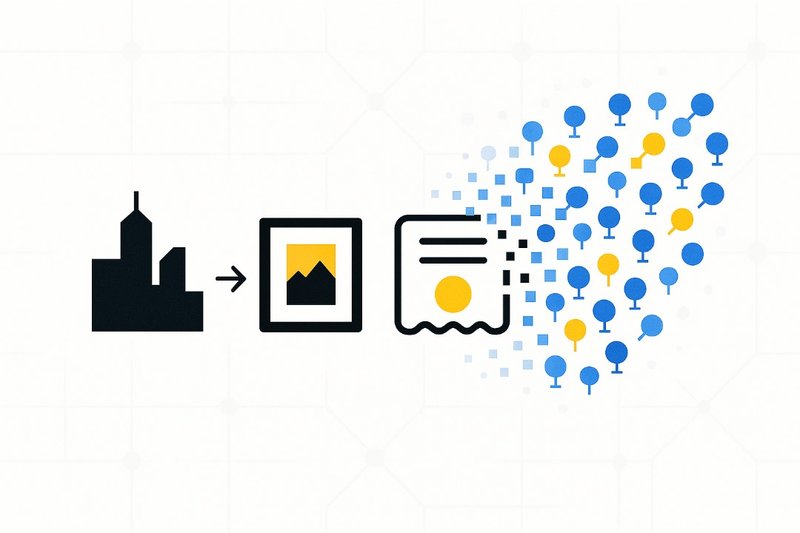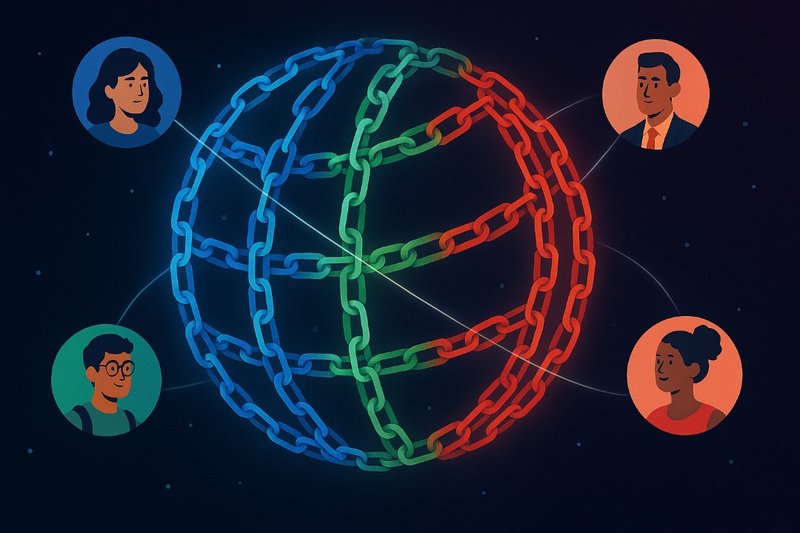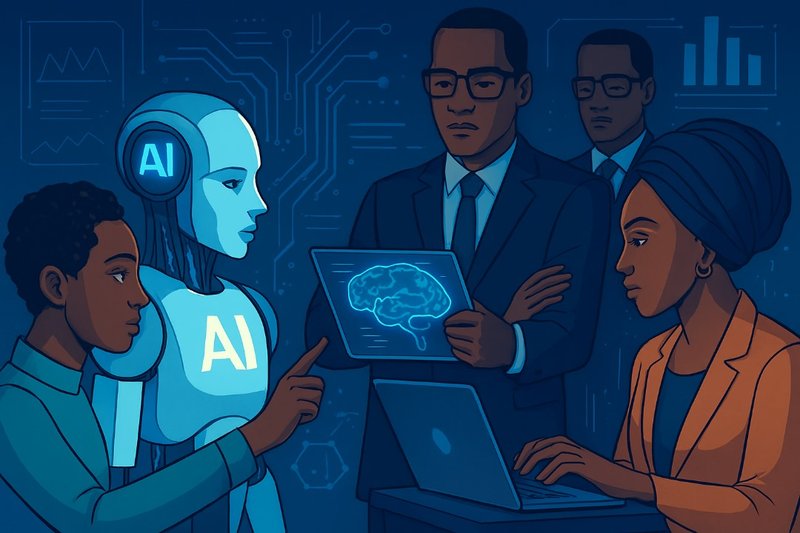Introduction
Imagine signing a contract that doesn’t just follow fixed rules but can also learn from experience, adapt to new situations, and even warn you when risks are rising. That’s the exciting possibility at the meeting point of Artificial Intelligence (AI) and Blockchain.
Smart contracts — the digital agreements that automatically execute when certain conditions are met — have been powerful in reshaping finance, supply chains, and even digital identity. Yet until now, they have mostly acted like vending machines: you insert the right coin, and the same product drops every time. Reliable, yes — but not very smart.
Enter AI. By giving smart contracts the ability to analyze, predict, and learn, we open the door to contracts that behave more like digital advisors than simple rule-followers. For entrepreneurs, students, and innovators worldwide, this is not just a technical shift. It’s a new way to think about trust, automation, and the future of decision-making.
What Are Smart Contracts? (A Quick Refresher)
To make sure everyone is on the same page, let’s start simple.
- Smart Contract Basics: A smart contract is a piece of code on a blockchain. It says, “If condition A happens, then action B automatically follows.”
- Why They Matter: Unlike traditional contracts, there’s no need for lawyers, banks, or middlemen to enforce the terms. The blockchain itself guarantees the outcome.
- Analogy: Think of a smart contract like a train ticket gate. If your ticket is valid, the gate opens. If not, it stays closed. There’s no discussion, no negotiation.
So far, smart contracts have been rigid. But real life isn’t always so predictable. That’s where AI steps in.
Why AI Matters for Smart Contracts
AI is like giving your vending machine the ability to recommend a snack based on your health, your budget, or even the weather outside. In other words, it transforms mechanical automation into intelligent interaction.
Here’s how AI enhances smart contracts:
- Adaptability: AI can process new data and adjust outcomes without needing to rewrite the contract.
- Prediction: It can forecast risks or opportunities — for example, spotting a likely fraud attempt in a financial transaction.
- Personalization: Contracts could adapt to the needs of different users, making agreements more flexible and human-centered.
The combination creates what some call “self-learning contracts” — agreements that don’t just execute but evolve.
Real-World Examples: Where AI Meets Blockchain
This may sound futuristic, but seeds of it are already here.
- Finance: Imagine a loan agreement where the repayment terms adapt based on your real-time income and spending patterns, verified securely on blockchain.
- Healthcare: A digital consent contract could learn your medical history and only share relevant data with authorized doctors while protecting your privacy.
- Supply Chain: Smart contracts could use AI to predict delivery delays and automatically renegotiate deadlines with suppliers.
- Energy Markets: Contracts could shift energy usage in real-time, learning from weather patterns and consumer behavior to optimize distribution.
In each of these, AI adds a layer of intelligence while blockchain ensures transparency and trust.
The Challenge: How Do You Make Learning Trustworthy?
There’s a catch: blockchain thrives on determinism (rules must be clear, predictable, and verifiable), while AI thrives on probability (patterns, predictions, and sometimes uncertainty).
So how do you mix oil and water?
- Solution 1: Off-Chain AI, On-Chain Proof
The heavy AI calculations can happen outside the blockchain, and only the result (plus a cryptographic proof) is written to the chain. - Solution 2: Oracles
Trusted data “bridges” feed AI-driven insights into smart contracts while ensuring no tampering. - Solution 3: Hybrid Contracts
Part deterministic (fixed rules), part adaptive (AI-driven), these contracts balance trust with intelligence.
Think of it like cooking: the AI is the chef preparing the dish in the kitchen, and the blockchain is the receipt that proves what was cooked and served.
Benefits of AI-Powered Smart Contracts
When designed carefully, the blend of AI and blockchain brings massive benefits:
- Greater Efficiency: Less human oversight needed.
- Smarter Risk Management: Detects fraud, errors, or market shifts before they cause damage.
- Fairer Agreements: Personalized terms instead of one-size-fits-all.
- Dynamic Systems: Contracts that adjust in real time to global events.
For businesses, this could mean more resilient partnerships. For everyday users, it could mean safer, fairer digital interactions.
Risks and Ethical Questions
No breakthrough comes without challenges. Some of the most pressing include:
- Bias in AI: If the AI system behind a contract is biased, the outcome may be unfair.
- Transparency: People may struggle to understand how the AI made its decision.
- Security: If hackers manipulate the AI input, they could trick the contract.
- Accountability: Who is responsible when a self-learning contract makes a bad call — the developer, the AI, or no one?
These are not just technical puzzles. They are ethical and legal ones, and solving them will require collaboration across governments, businesses, and civil society.
What the Future Could Look Like
Picture 2030:
- Dynamic Insurance: Instead of fixed premiums, your health or car insurance adapts in real time to your lifestyle and driving habits.
- Global Trade 2.0: Smart contracts automatically handle tariffs, customs, and payments, learning from trade patterns to avoid disputes.
- Digital Citizenship: Governments issue AI-powered smart contracts for voting, taxes, and identity — fairer, faster, and fraud-resistant.
This future is not about replacing human judgment but augmenting it. The contracts of tomorrow will act less like vending machines and more like digital guardians.
How Entrepreneurs and Students Can Prepare
For entrepreneurs:
- Learn the basics of blockchain development (Ethereum, Solidity, etc.).
- Explore AI models that can integrate with contract systems.
- Start small — proof-of-concept projects can lead to big opportunities.
For students:
- Focus on interdisciplinary skills: coding, ethics, economics, and law.
- Join open-source communities where AI-blockchain experiments are happening.
- Think globally — these technologies will shape industries worldwide.
Conclusion
The story of smart contracts is evolving from automation to adaptation. By weaving AI into blockchain, we’re not just making contracts smarter; we’re making them partners in building a more transparent, responsive, and fair digital economy.
Yes, challenges remain. But every major innovation has begun with questions bigger than the answers. What matters is that AI-powered smart contracts open a new frontier: one where trust is not just coded but learned.
The next decade will determine how we shape this frontier. And whether you are a student, an entrepreneur, or simply a curious reader, understanding this shift today means you’ll be better prepared for the digital society of tomorrow.
👉 Now it’s your turn: What do you think about AI-powered smart contracts? Do they excite you, or do the risks worry you more? Drop your thoughts in the comments — your perspective could spark the next big idea in this conversation.




Comments (0)
Leave a Comment
No comments yet. Be the first to comment!